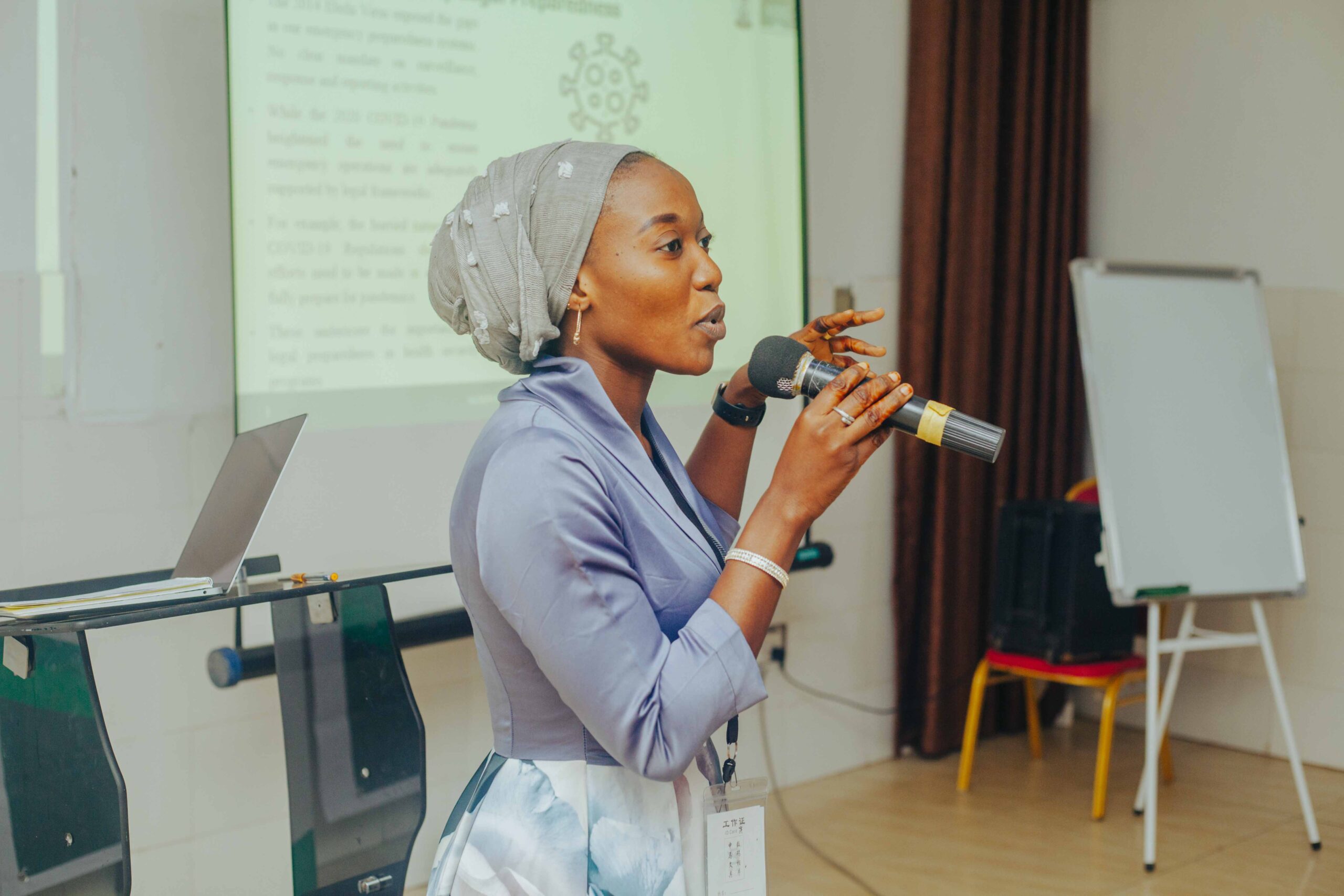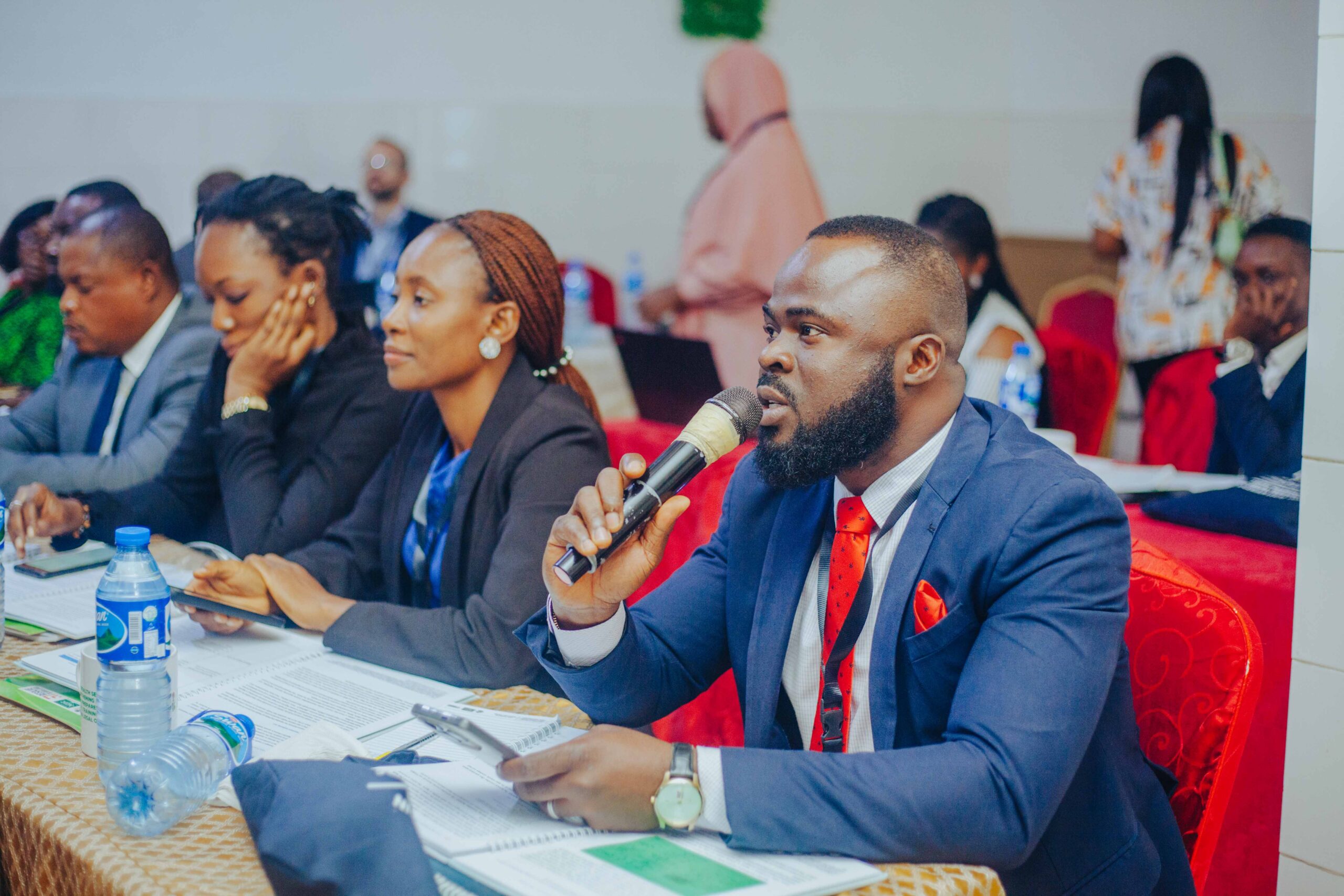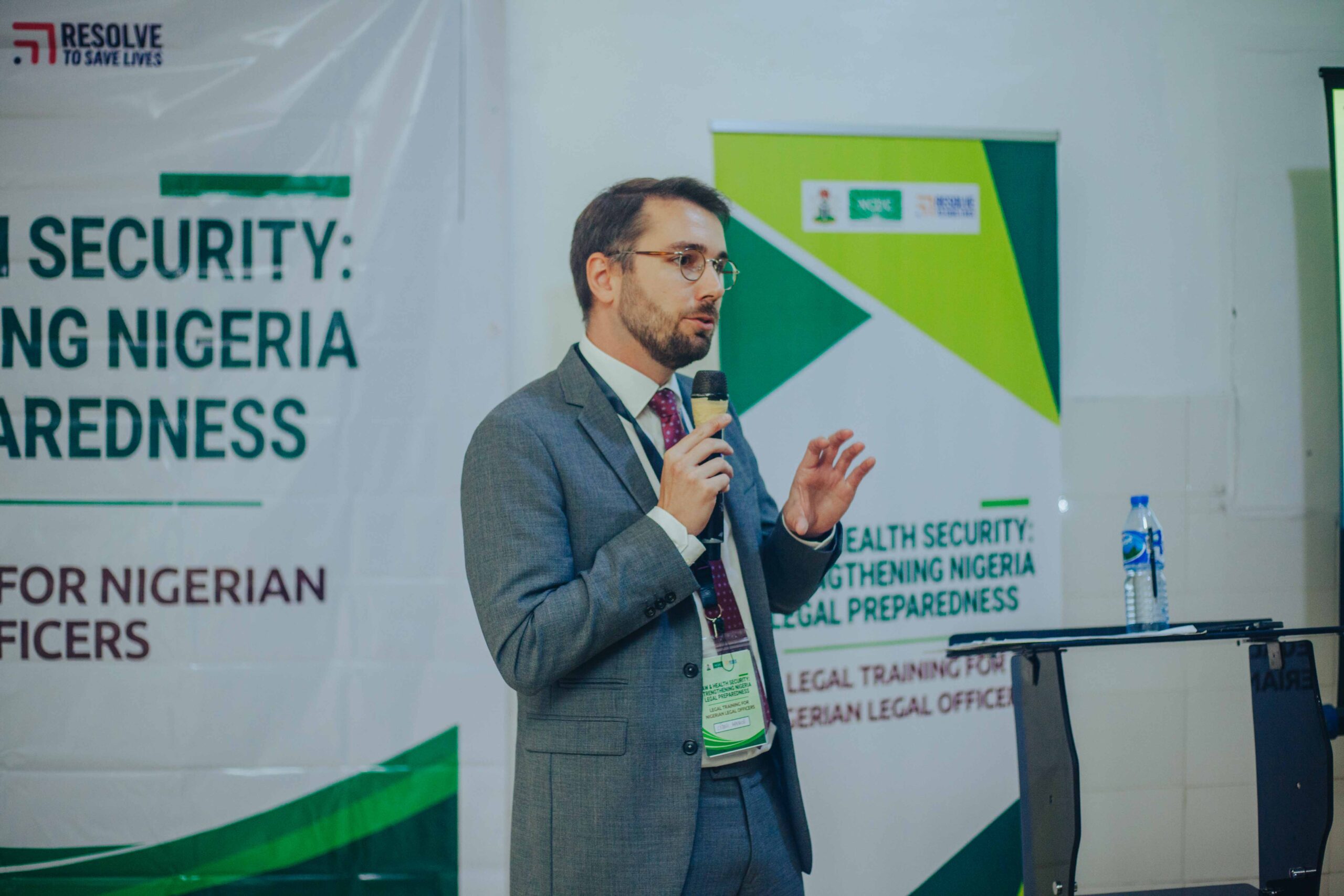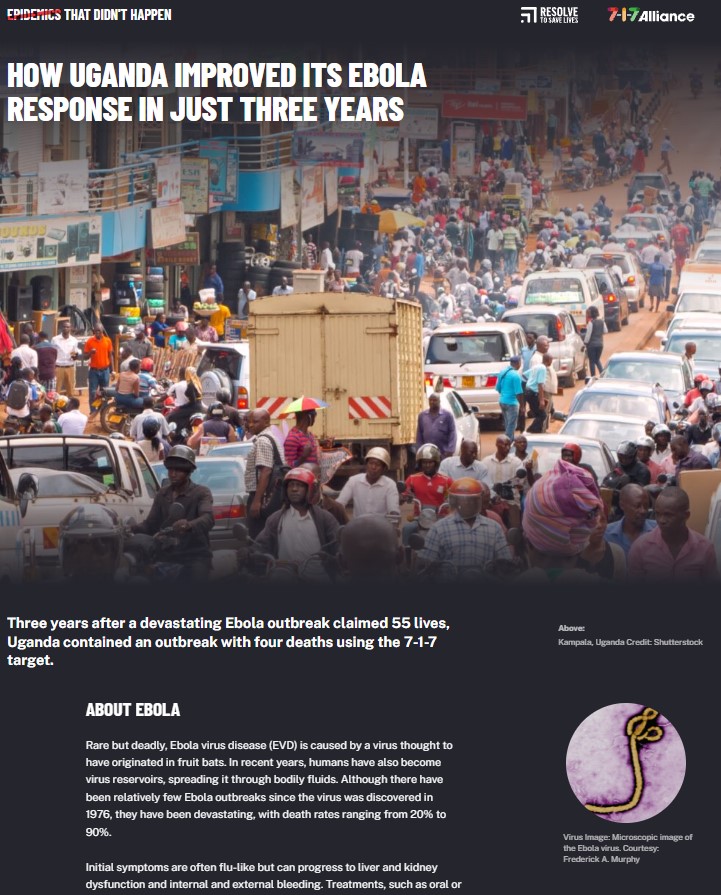Keeping people safe from health threats requires communities, state and federal governments, and global bodies to work together. Underpinning this work are international laws that require countries to be prepared for, and respond to, health threats in a timely way. While these international laws are widely known, getting them implemented in federated systems requires concerted efforts to have an impact on everyday life.
Nigeria is one such federated system that is emblematic of the challenges and opportunities presented by this form of governance. Its 36 states wield significant lawmaking authority, acting with constitutionally guaranteed autonomy from the federal government. Resolve to Save Lives, in partnership with the Nigeria Centre for Disease Control and Prevention (NCDC), recently supported the Government of Kano State through the development and passage of a new Health Security Bill—making Kano the first state in the nation to adopt such comprehensive subnational legislation.
“The recent passage of the Bill marks the end of a long engagement requiring dedication, expertise and political flair,” said Safiya Musa, NCDC Legal Adviser. “It also marks a historic moment where the state is aligned with the best international standards, including IHR (2005), and is the start of an exciting new chapter as the state begins to implement the legislation.”

The road to new legislation in Kano State
As one of the most populous states in Nigeria, and a significant international gateway connecting Nigerians with the rest of the world, Kano is a complex and important place to pilot this approach to subnational lawmaking. It was selected along with four other states as an extension of the federal-level work being undertaken by Resolve to Save Lives and its partners since 2019. This work’s focus is implementing International Health Regulations (IHR) (2005), which includes guidance on the surveillance of and response to infectious disease outbreaks.
After completing federal- and state-level legal assessments from 2019 to 2022, the team concluded that Nigeria’s states were not effectively deploying their constitutional power to implement their obligations under IHR (2005). To facilitate Kano in these efforts, they connected federal lawyers from NCDC with state lawyers and local civil society organizations. With technical assistance and legal guidance from Resolve to Save Lives, NCDC worked with these important state-level stakeholders to develop legal reforms that improve health security and bring Kano into alignment with international standards.
“Reform at the state level requires a delicate balance of technical legal analysis and stakeholder relationship building,” said Amira Abubakar, an assistant legal advisor at NCDC. “As well as completing assessments of existing legal instruments, I spend time working with colleagues at ministries, departments and agencies to make sure public health law reforms—like the recent Bill passed in Kano—are completed successfully.”
Under Musa’s leadership, Abubakar and her colleagues oversaw lively discussions from late 2022 through 2023 that established Kano State as the locus of control for implementing IHR (2005), offering protection for its citizens against potential infectious disease threats. By completing a much-needed legal assessment to identify gaps, the team was able to identify obsolete laws in need of an update and provide technical assistance to the stakeholders with the authority and political will to bridge those gaps. And after several years of work that included painstaking debates, granular assessments—and multiple regional disease outbreaks—in February 2024, the Health Security Bill was finally passed by the Kano State House of Assembly.

“The Kano Health Security Bill is a milestone for both the state and Nigeria,” said Emem Udoh at Resolve to Save Lives, who worked closely with partners at NCDC to develop the Bill. “It’s a huge step forward for protecting everyday citizens, and something we’re working to emulate across other states in Nigeria.”
What’s in the new Bill
The Bill encompasses various aspects of public health, including surveillance, management of emergencies, infection prevention and control, and the protection of health care workers. It includes the explicit adoption of obligations from the IHR (2005), including mandatory after-action reviews and human rights protections during public health emergencies. It also includes provisions for health security financing and codifies the 7-1-7 target, thereby ensuring mandatory completion of detection and investigation of potential public health events within specific timeframes.
Other changes introduced by the Bill include statutory recognition of the State Epidemiologist, the establishment of a state-level public health laboratory with specific reporting obligations, prohibition of the spread of false or misleading information during public health emergencies, and mandated cooperation of all state public health agencies with their national counterparts, including NCDC. Emem says the contents of the Bill represent significant, positive changes that are poised to establish Kano as a center of public health excellence.

Implementing the Bill and partnering with other States
Next, the team will continue its partnership to combine the forces of federal- and state-level actors in bringing the Bill to fruition. While the passage of the Bill is a historic moment, it is also the beginning of a long road to implementation. “Without people at the state level driving the Bill forward, it might as well not exist,” said Musa. “We’ll continue working with our partners in Kano State to make sure they are equipped and empowered to bring this Bill into reality, and to make sure the state is set up for success in meeting its new commitments.”
“Health security is everyone’s business,” said Shuaibu Muhammad at the Centre for Awareness on Good Governance and Development. “As a Kano-based civil society organization, our role is to advocate for people’s needs. Supporting the passage of the Health Security Bill was therefore a natural activity for us. We will now continue to play our part in holding the government accountable and ensuring the law is properly implemented to the benefit of the citizens.”
Cédric Apercé, Senior Legal Advisor at Resolve to Save Lives, said the passage of the Bill has provided many learning opportunities to expedite similar lawmaking work in other states and opened the possibility of shifting the focus of these legal activities even closer to citizens by working with stakeholders at the local level. “Public health is always evolving, and laws must evolve to meet shifting needs,” he says. “The Kano Health Security Bill will allow the state to meet those needs, protect its people—and serve as an exemplar for public health agencies across Nigeria and across the region.”
The passage of the Kano Health Security Bill was supported by a partnership including the Nigeria Centre for Disease Control and Prevention (NCDC), the Government of Kano State, the Centre for Awareness on Good Governance and Development (CAGGAD), the Foreign, Commonwealth and Development Office (FCDO), Lafiya Nigeria, the Legislative Initiative for Sustainable Development (LISDEL), the Global Health Advocacy Incubator (GHAI) and Resolve to Save Lives.



